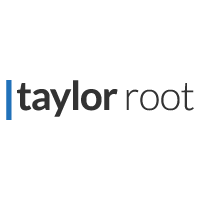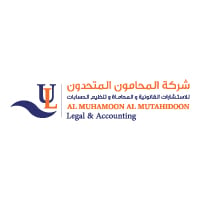

Chief legal officer | Dubai Future Foundation










Lidia Kamleh
Chief legal officer | Dubai Future Foundation
How do you approach managing legal aspects during periods of instability or crises, and how does your legal strategy align with the broader business strategy to ensure the organisation’s resilience?
At DFF, our business is the future—an inherently uncertain landscape. The legal team operates at the cutting edge, navigating unique or first-of-their-kind transactions, pioneering research and development initiatives, and exploring regulatory gray areas. Our legal strategy is designed to foster resilience and drive innovation, ensuring that we remain compliant and forward-looking as we support DFF’s broader objectives and maintain our leadership in global innovation.
During times of instability, my approach to managing legal challenges is rooted in innovation and adaptability, closely aligning with DFF’s mission to pioneer change. As legal advisors at the intersection of technology, science, and law—such as with our BVLOS drone delivery project—we are responsible for anticipating and responding to crises. The legal team is not only tasked with identifying and managing risks but is also empowered to make swift decisions and collaborate with the business and other stakeholders to address emerging risks or trends. This empowerment allows us to maintain agility in our legal positions, contracts, and negotiations, avoiding a one-size-fits-all approach.
We have adopted a collaborative mindset, working closely with business and industry leaders to gain a deep understanding of the relevant issues and sectors. This enables us to co-create flexible solutions that support innovation while ensuring compliance and public safety. We also conduct legal design workshops to explore potential crisis responses that mitigate risk and best suit the situation.
Our legal DNA encompasses immediate problem-solving, experimentation, future mitigation, and finding innovative pathways forward. By diversifying our legal approaches and fostering openness in all situations, we ensure that innovation and pilot projects are not hindered, positioning us well for future challenges.
What are the main cases or transactions that you have been involved in recently?
I led the legal structuring and regulatory compliance for pilot programs deploying autonomous delivery robots and drones in collaboration with various third parties. In addition, I am currently leading the legal efforts to establish Dubai’s regulatory sandbox, which focuses on AI, Circular Economy, Health, and PropTech, ensuring a balance between innovation, compliance, ethics, and consumer protection.
I serve on the Courts of Space working group, where we are developing pioneering legal frameworks for space exploration and commerce. As part of this initiative, I co-organised the region’s first space moot courts with DIFC, positioning Dubai as a leader in space law and addressing the unique legal challenges in the sector.
Furthermore, I contribute to the ideation team shaping future policies and strategies under Dubai’s D33 vision, working to develop innovative legal solutions that support the city’s growth. My contributions to DFF’s Global 50’s report involved tackling complex jurisdictional challenges and providing strategic insights that enhance Dubai’s standing in global innovation leadership.
How have you integrated technology into your legal processes, and what impact has this had on efficiency and compliance?
We implemented Contract PodAI, an AI-driven contract management system, which has dramatically improved our efficiency, along with Josef, a legal automation software. These tools automate many repetitive tasks associated with contract management, such as drafting, reviewing, and approving contracts, allowing our legal team to focus on more strategic and complex legal issues. Additionally, we have adopted Co-Pilot and have been training with our Dubai AI Centre and prompt engineers on utilizing AI to support our operations more broadly.
The impact of our technological integration has been profound. We have significantly enhanced our efficiency through these technological advancements, benefiting from early detection of risks. This proactive approach has led to a reduction in legal disputes and ensured that our contracts remain agile. Beyond contract management, we have also integrated AI and other advanced technologies into our workflow processes, improving our capability to operate in emerging areas like the metaverse and AI governance. These innovations have enabled us to establish internal standards for how technology can be leveraged to drive legal excellence. The use of AI and legal prompts has generally allowed us to explore various hypothetical scenarios and their potential legal outcomes.
What do you see as the major legal challenges for businesses in the region over the next five years, and how are you preparing to address them?
The primary legal challenges for businesses in the region will arise from navigating the intended and unintended consequences of emerging technologies and new business models. Regulations can often be nuanced, overburdensome, or, at times, underdeveloped, creating a complex environment for organisations to navigate. Businesses must remain agile in responding to the new issues that emerge from the rapid advancement of technologies and evolving practices. Key challenges include the use of open-source software, derivative data, general datasets, and large action models—where technology performs actions on behalf of humans. Additionally, jurisdictional issues and dispute resolution in a borderless digital world pose significant challenges.
To address these challenges, we incorporate specific contract clauses for deliverables involving consultants who may use Generative AI products, ensuring that these technologies align with our legal standards and risk management strategies. We also employ risk and reward governance matrices to carefully balance legal positions, providing clear guidelines for accountability and responsibility. This approach mitigates potential risks associated with emerging technologies while incentivising best practices and innovation within our legal frameworks. Furthermore, we have adopted outcome-based contracts for sustained or breakthrough innovation, where fault is not allocated to a single party, but all parties are rewarded for successful outcomes.
Chief legal officer | Dubai Future Foundation